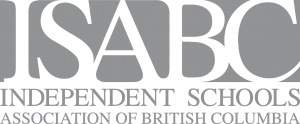Middle School
Grade 4 To Grade 7

about middle school
Urban Academy middle school students learn to expand their perspectives and appreciate the diversity around them. They use research, technology, the arts and presentations as vehicles to share information. Empowering them to take action with regard to issues that they are passionate about, they begin to learn that they can effect change. They focus on the idea of environmental, social and personal sustainability and the local, provincial and global impact they have as individuals within a wider society.
Throughout the school year, students learn to apply new skills to real life situations, bringing learning to life. Arts, STEM, Science and leadership focused education and field study trips also connect students to their inquiry units and provide opportunities to make real world connections. Through a comprehensive technology program, students learn how to use the internet responsibly, digital citizenship relevant to their age level and basic computer programs and typing.
By working on long-term projects that culminate in presentations and other creative outcomes, students gain key insights into the curriculum and understand every facet of their education. Projects are varied and diverse, exploring art, technology, science, math, socials, drama and music. Students continue to learn that engaging in their studies and applying themselves results in a successful educational experience. They embrace creativity and look for the best possible solutions to the challenges they face.
There is also a significant and continued focus on social and emotional development through programs that allow students to explore how to make choices, work through challenges and become successful team members. Opportunities to build independence and resilience through camp experiences and outdoor education is also a significant component of the middle school years.
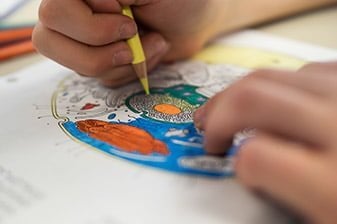
Creative Learning
Students are introduced to more complex art techniques including printmaking and mosaic. They explore who created these art forms and how they are a part of different cultures. Teachers use the elements of music to support math education such as quarter notes and half notes, often connecting math and art by exploring elements of symmetry and replication. We focus on making students literate in every sense and musical literacy is no exception. Students can join junior choir starting in Grade 6 and work with a variety of musical instruments including recorders, ukuleles, xylophones and other percussion instruments in their regular music class. Concert Band begins in Grade 6. UA Students are also no strangers to using the arts to display their learning in a tangible way.
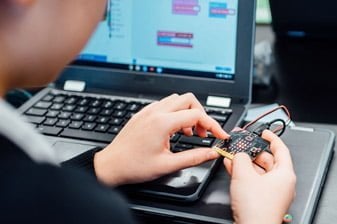
Innovative Learning
At Urban Academy, students learn how to learn. We believe the world is constantly evolving, so we teach students to continuously evolve with it. Middle School Students beginning in Grade 4 are provided with Chromebooks and do much of their work in the cloud as a Google School. While technology is integrated in all grades, formal Applied Design, Skills and Technology (ADST) courses begin in Grade 6 as part of the exploration rotation.
We believe that learning is never finished, so today our students are learning to code and eventually they will be developing their own apps. They can expand their creative problem solving skills with all of the tools available in the Maker Space. Students are constantly engaging with Adobe Creative Suite, ePortfolios, iPads and MacBook Pros to do their work and demonstrate their learning. Our digital citizenship program continues through the middle school years with a strong focus on media literacy and Internet safety.
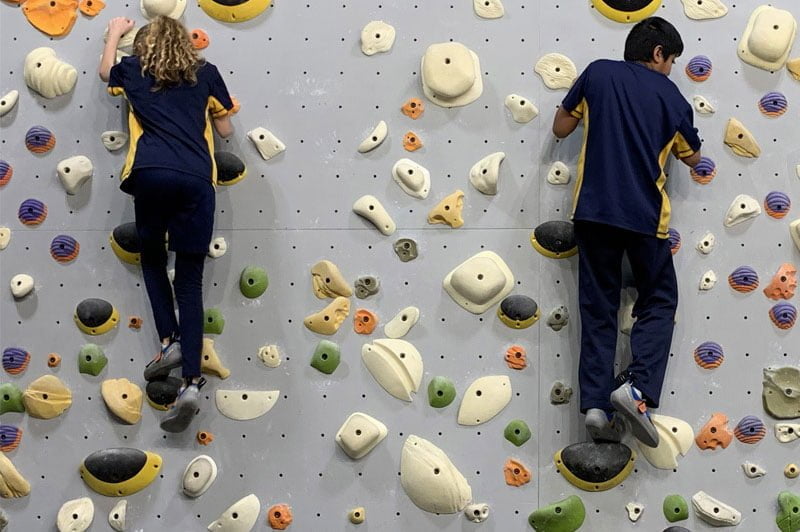
Experiential Learning
Students venture into the outdoor environment each week and enjoy recess, Physical Education classes, science labs, art class and many other opportunities to be outside. They use their environments as inspiration for poetry and literacy, drawing from the beauty of nature. Students also experience a wide variety of winter sports on Winter Activity Day and participate in overnight camps at the end of the year, which become progressively longer as students get older.
Outdoor education is paramount in our middle school years. A structured Outdoor Education Program for Grades 6 and 7 integrates new skills, exposes students to new possible passions and develops self confidence.
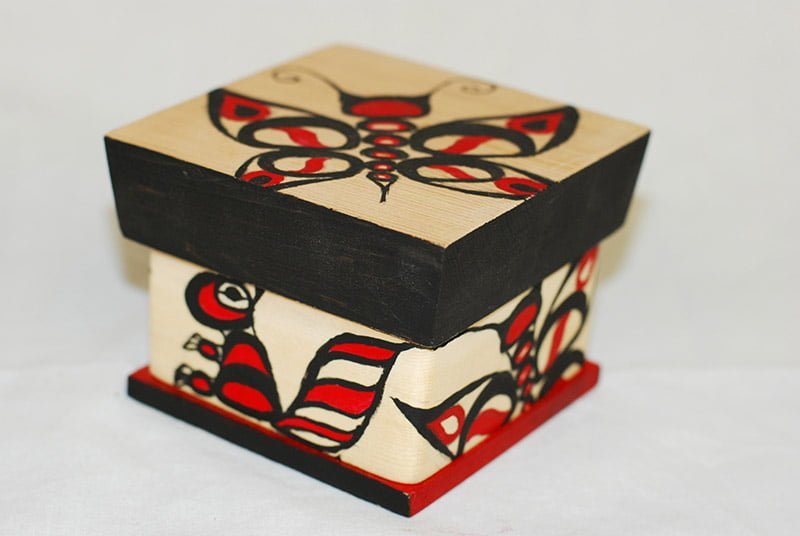
Real World Integration
Urban Academy connects students with thought leaders and experts in their field of interest who can offer information and insights on projects and areas of study. Field study offers an extension of what is being learned in the classroom and helps to answer the question ‘when and how would I use and apply this new knowledge?’
Through a social emotional program called Open Parachute, students are taught how their brain has been created, the different parts and how it determines their actions and reactions. There are routines in place that build independence, balanced with ‘buddy time’ with younger mentees to work through projects, engage in reading and math games and ultimately build leadership skills.
Grades 4–5 Curriculum
Language Arts
- Reading and writing activities connected to units of inquiry
- Developing oral presentation skills
- Exploring fiction and non-fiction stories and texts
- Refining skills in both reading and writing – continual assessments of reading and comprehension skills through various assessments
- Discovering spelling and cursive writing programs
Math
- Developing critical thinking skills including introduction to passage of time, units of measurement (length, mass, volume and area) and exploring perimeters
- Relating math to real world situations, beyond rote memorization and computation
Social Emotional Learning & Mindfulness
- Understanding the importance of mindfulness in day to day life and personal wellness
- Learning conflict resolution techniques
PE & Health
- Developing an awareness of the various aspects of personal health in developing a balanced lifestyle
- Discovering physical activity preferences
- Playing indoor and outdoor games and organized sports
Social Studies
- Studying current and past Canadian events to learn to analyze information and understand various beliefs, values and world views
- Learning through Indigenous ways of knowing and being
Science
- Engaging in hands-on, inquiry-based activities and experiments
- Learning safety with tools
Technology
- Using class sets of Chromebooks
- Discovering various educational apps used to enhance student learning
- Exploring coding through the use of apps and robots
- Obtaining an introduction to circuit boards
French
- Developing oral language skills
- Learning to write in French
- Exploring topics related to units of inquiry
Art
- Exploring various skills and media
- Developing fine art skills
- Engaging in artist studies
Drama
- Playing drama games that teach students to better understand their bodies and the space around them
- Engaging in two major performances per year
- Developing oral presentation skills
- Learning through movement activities
Music
- Exploring orff and percussion instruments
- Choosing between learning the recorder or ukulele
- Playing music games
- Exploring rhythm, beat, tempo and pitch
Field Study
Field study is linked to units of inquiry and subject to change from year to year. Examples include:
- Great Canadian Shoreline Cleanup
- Surrey Children’s Festival
- Visiting the VSO
- Attending the ballet
- Going to Granville Island Theatre (Plays)
- Experiencing Mount Seymour
- Visiting UBC Organic Farm
Career Education
- Developing good leadership skills through buddy work with other students and community service
- Engaging in community service club opportunities
- Developing good learning and work habits
- Understanding goal-setting
- Discovering problem solving skills
- Exploring self-identity through project-based initiatives
Library
- Sharing books with peers
- Developing an understanding of favourite genres
Other Opportunities
- Camp
Grades 6–7 Curriculum
Language Arts
- Exploring, becoming immersed in and genuinely enjoying a variety of text and media
- Engaging in activities involving speaking and listening, reading, viewing, writing and representing in order to strengthen their skills in all facets of literacy
- Thinking critically, creatively and reflectively in order to appreciate language and make connections
- Examining a wide range of content including short stories, novels, non-fiction and research, poetry exploration, article writing and a detailed study and performance of a Shakespearean play
Outdoor Education
- Gaining new experiences
- Enhancing skills
- Linking experiences to curriculum
- Building courage
- Exploring new environments and growing developmental curiosity
Math
- Solving problems related to time, sports, travel, money management, science and art
- Using mathematical thinking to connect, create, communicate, visualize, reason and solve
- Analyzing novel and complex problems from a variety of perspectives
- Considering possible solutions and evaluating their effectiveness
- Generating confidence in math skills and abilities
PE
- Participating in different types of physical activity to influence physical literacy, personal health and fitness goals
- Learning to enjoy physical activity
- Determining how to make healthy choices to influence physical, emotional and mental well-being
- Discovering new sports and activities such as fencing, capoeira, ballroom dancing, curling, Ultimate Frisbee, bowling and more
Social Studies
- Delving into the history of society and building a greater understanding of how our world became what it is today. The subject matter is wide and varied but will cover topics such as:
- Economic instability and conflict
- Formation and current state of governments
- Complex global challenges that require international collaboration
- The role of media today
- How systems of government vary in their respect for human rights and freedoms
Science
- Developing the ability to think critically, solve problems and make ethical decisions to:
- Communicate their questions, express opinions and challenge ideas in a scientifically literate way
- Exercise an awareness of their role as an ecologically literate citizenry, engaged and competent in meeting the responsibilities of caring for living things and the planet
- Gaining opportunities to ask questions, identify beliefs and opinions, consider a range of views, work collaboratively and ultimately make informed conclusions that lead to responsible choices
- Using conceptual learning with both traditional ecological knowledge and First Peoples perspectives embedded in the curriculum
French
- Listening and viewing with intent to understand an increasing variety of messages
- Using strategies to help understand and acquire language
- Discuss interests in French
- Gaining reciprocal interactions, which are possible even with limited French
- Understanding through stories
- Deepening knowledge of Francophone communities to develop cultural awareness
- Listening and speaking while also building skills in reading and writing
- Using present, past and future tenses with ease in both oral and written work
Art
- Developing imaginative ability and fluency primarily in drawing
- Receiving an introduction to the elements and principles of design
- Gaining experiences and the opportunities to explore a variety of media
- Learning art history to illustrate the elements of good design
Drama
- Compare themes and traditions in drama from a variety of cultural, social and historical contexts
- Create roles to explore a range of issues, responses and themes to build confidence, communication and knowledge
- Discovering speech, movement, role play, improvisation and acting
Music
- Building creative growth through patience, readiness to take risks and willingness to try new approaches
- Expressing individual and collective perspectives
- Leaning from artists who challenge the status quo and explore new perspectives and experiences
- Starting concert band and vocals (Grade 6+ students)
- Leadership
- Engaging in in-house organization and activities
- Attending leadership programs as part of ISABC
- Participating as “buddies” with younger students in the performing arts
Digital Media Arts
- Learning about digital photography, video and sound design
- Developing knowledge and skills in digital media arts to be prepared for the future in the growing tech industry
- Building valuable skills and learning to use technology safely and responsibly
- Working on projects that are integrated with work in other subjects, overarching themes and whole school events
Health and Technology
- Attaining skills, attitudes and behaviours to enhance personal well-being and become prepared for a world of complex, ongoing change
- Exploring and covering elements from the Health, Career Explorations and Applied Skills (Technology) curriculum
- Gaining insights from community visitors who present different points of view and provide opportunities for discussions
- Examining ethical and social issues related to the use of information and communications technology
- Finding, gathering, assessing and communicating information using electronic means and learning about the safe and responsible use of the technology.
Other Opportunities
- Camp
- Field study

benefits
Demonstrated Learning
As preparation for long-term success, students in the intermediate program will be expected to demonstrate their knowledge. Students use diverse subjects and methods to showcase findings and explain their ideas, setting them up for long term success in their careers as they learn to make a case, present an argument and share ideas.
Creative Solutions
There’s always more than one way to solve a problem. At Urban Academy, we encourage our students to tackle issues from more than one angle, anticipate flaws in their arguments and explore new ways of thinking. Students are given opportunities to take greater risks to reach innovative, creative solutions to complex problems.
Computer Intelligence
Being part of the real world extends to applications and innovative solutions in the world all around us. Students learn to react to problems with a more innovative mindset, key insights to online behaviour and safety and practical applications for a highly relevant education experience.
Experiential Education
Students participate in outdoor education linked to curriculum every 6 weeks. These connect them to real life as they learn knowledge application through activities such as Leadership Challenge (health and career planning), rock climbing (geology, geography, physics), snowshoeing (early explorers, First Nations), ski days (PE, HCP), water sports (PE, math, science, HCP, social studies), kayaking (PE, math, science, HCP, social studies), orienteering (PE, art, math, science, HCP), hiking (PE, science, social studies) and more.
Presentation Skills
Providing opportunities for presentations and speeches continues to help students build their confidence, setting them up for their post-secondary and professional lives. Our students tackle public speaking early, helping them to be powerful motivators and fueling them to share their passions and ideas. Debate Club and public speaking competitions challenge students to present effectively, as well as how to articulate their ideas and engage in knowledge transfer.
Cross-Curricular Projects
Students engage in experiences that mirror real-world experiences. They explore social sciences, language arts, French and the arts, allowing them to create multi-disciplinary work and preparing them for post-secondary and beyond.
Extracurricular Programs
Beyond the classroom, students explore activities such as public speaking opportunities, with a variety of clubs offered to intermediate students to empower them as they build courage and confidence, take risks and apply knowledge.
Activities such as Debate Club challenge UA Upper Middle School Students to communicate the ideas that they are exploring. Student council and Public Speaking Club allow for advocacy and presentation experience, giving students the opportunity to discover how to put their concerns and passions into action through research and presentation. When learning extends beyond the classroom, students engage in their education in new and meaningful ways.

extracurriculars
Students engage in excursions like the Great Canadian Shoreline Cleanup to learn about sustainability and discover performance by attending the VSO. They discover properties of matter through real-life experiences like ice skating. Students also have the opportunity to play intramural sports, participate in student-led conferences, engage in Body Science Awareness, attend our Remembrance Day assembly, camp, Terry Fox run and Sports Day. Parents get involved in activities as well with community events, the Winter Concert, Spring Play and parent teacher conferences.
Students get out on field trips, such as exploring the Lynn Valley Ecology Centre, VSO, water and kayak safety workshops, hiking, skiing, public speaking competitions and other events/seminars through ISABC. Students also get to participate in a constantly growing array of clubs, intramural sports and competitive sports programs including volleyball, basketball, badminton, track, ultimate frisbee and soccer. There is a camp at the end of the year, house challenges, Remembrance Day assembly and a Terry Fox Run.

supporting successful students
Student Services
The “extras” beyond the classroom create meaningful experiences and ensure every student is connected, learning, and invigorated.
- Out of School Care for students 12 and under
- Technology for learning and research including ADST
- Robotics Team
- Library
- Access to a Social Emotional Counselor
- Social Emotional Curriculum through Open Parachute
- Drama and music specialist instruction
- Ongoing academic assessment
- Bus transportation
- Assembly
- Outdoor education opportunities including rock climbing, hiking, personal development, and physical challenges
- Student leadership opportunities
- Clubs and athletic teams
